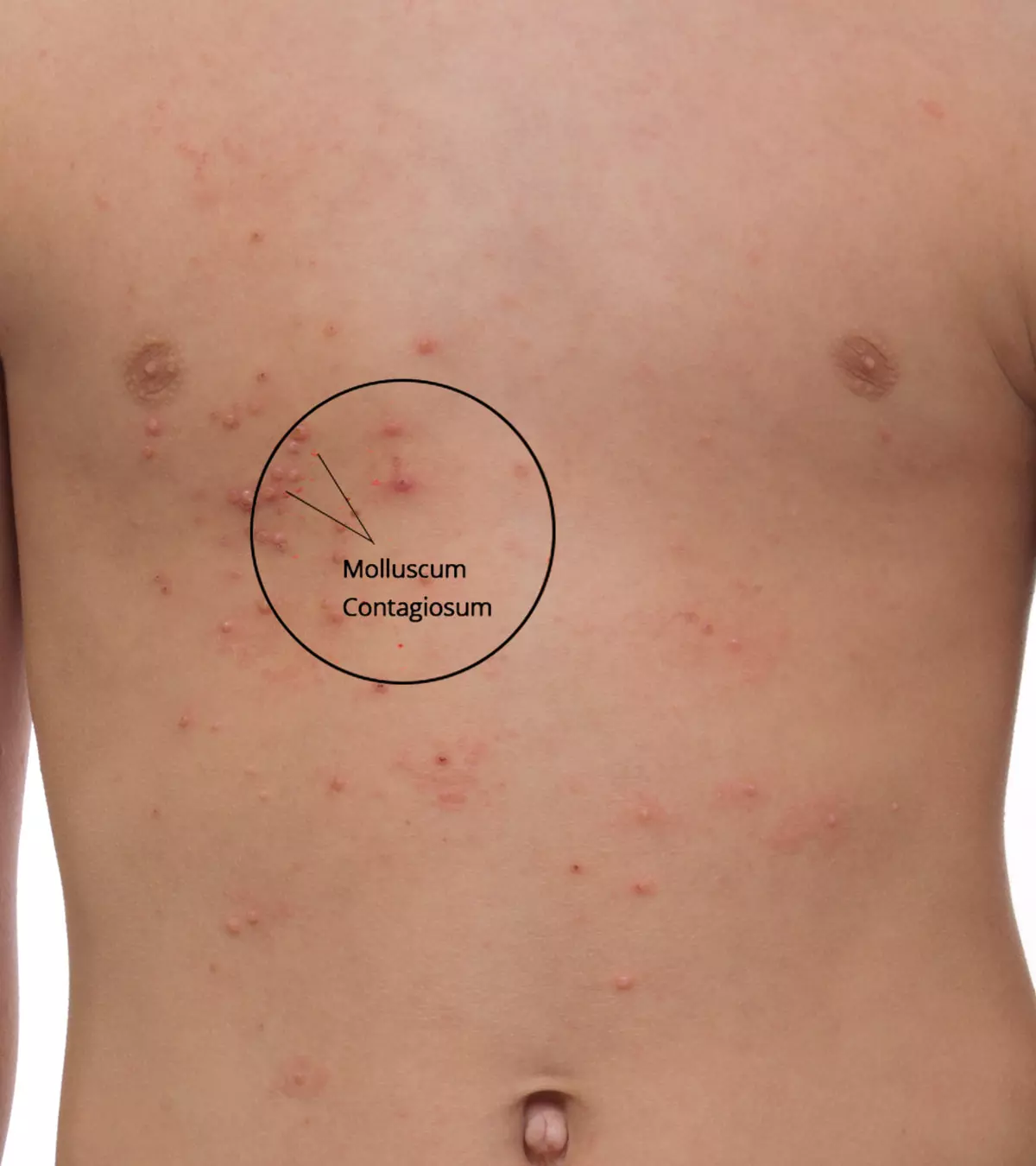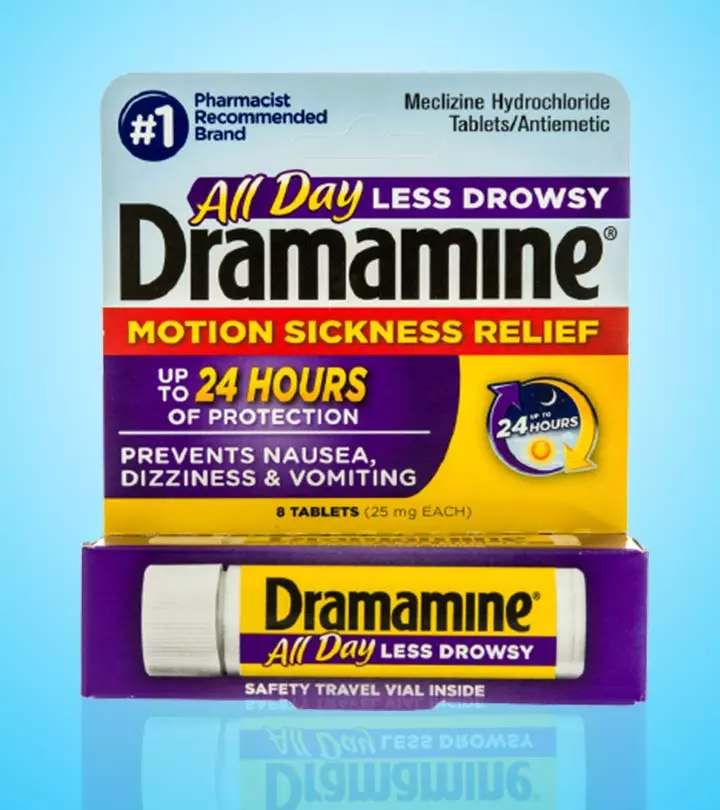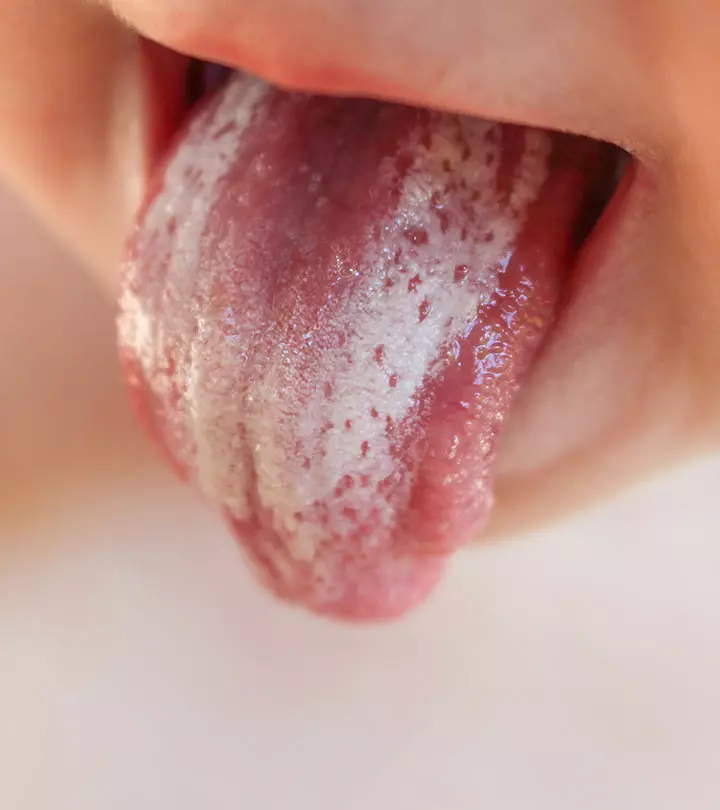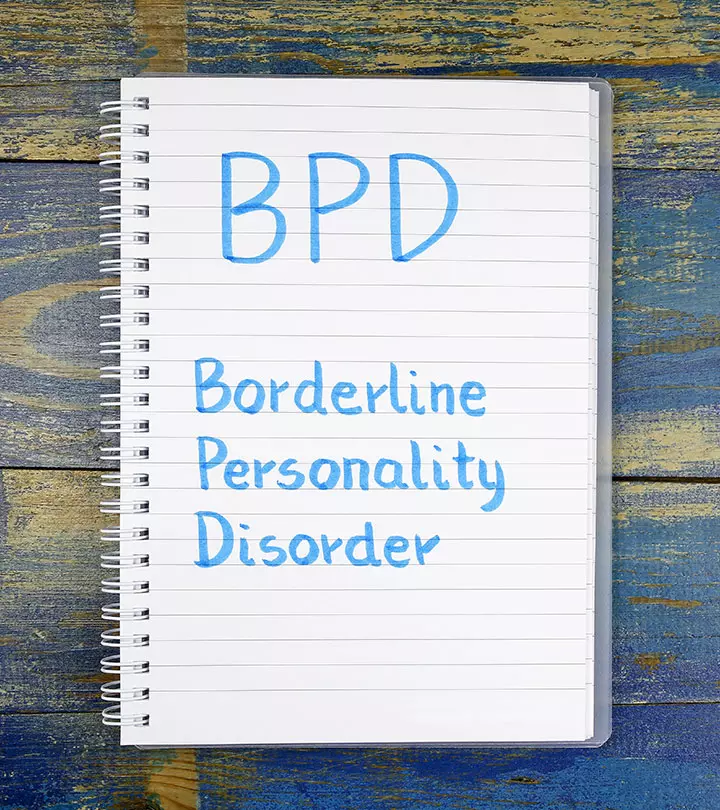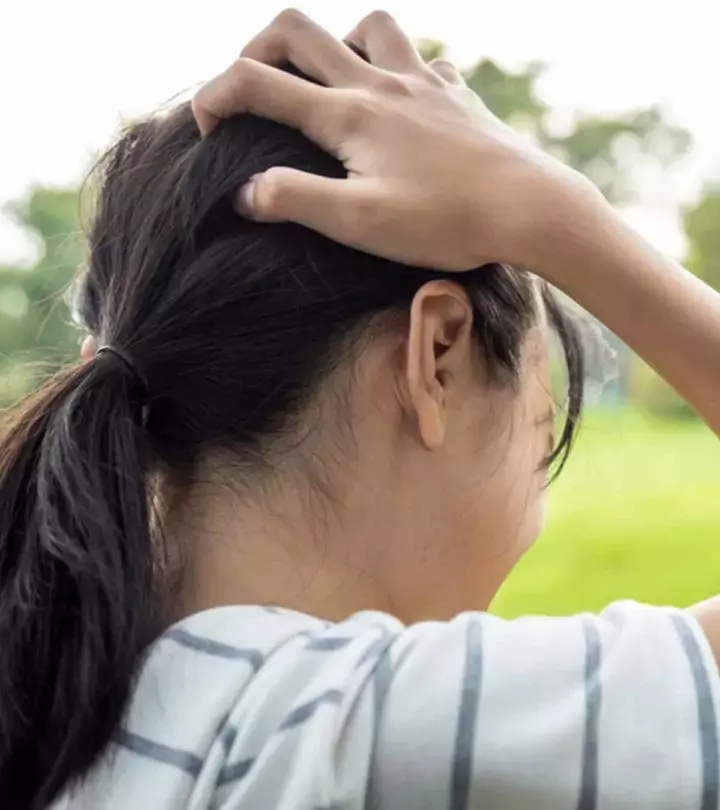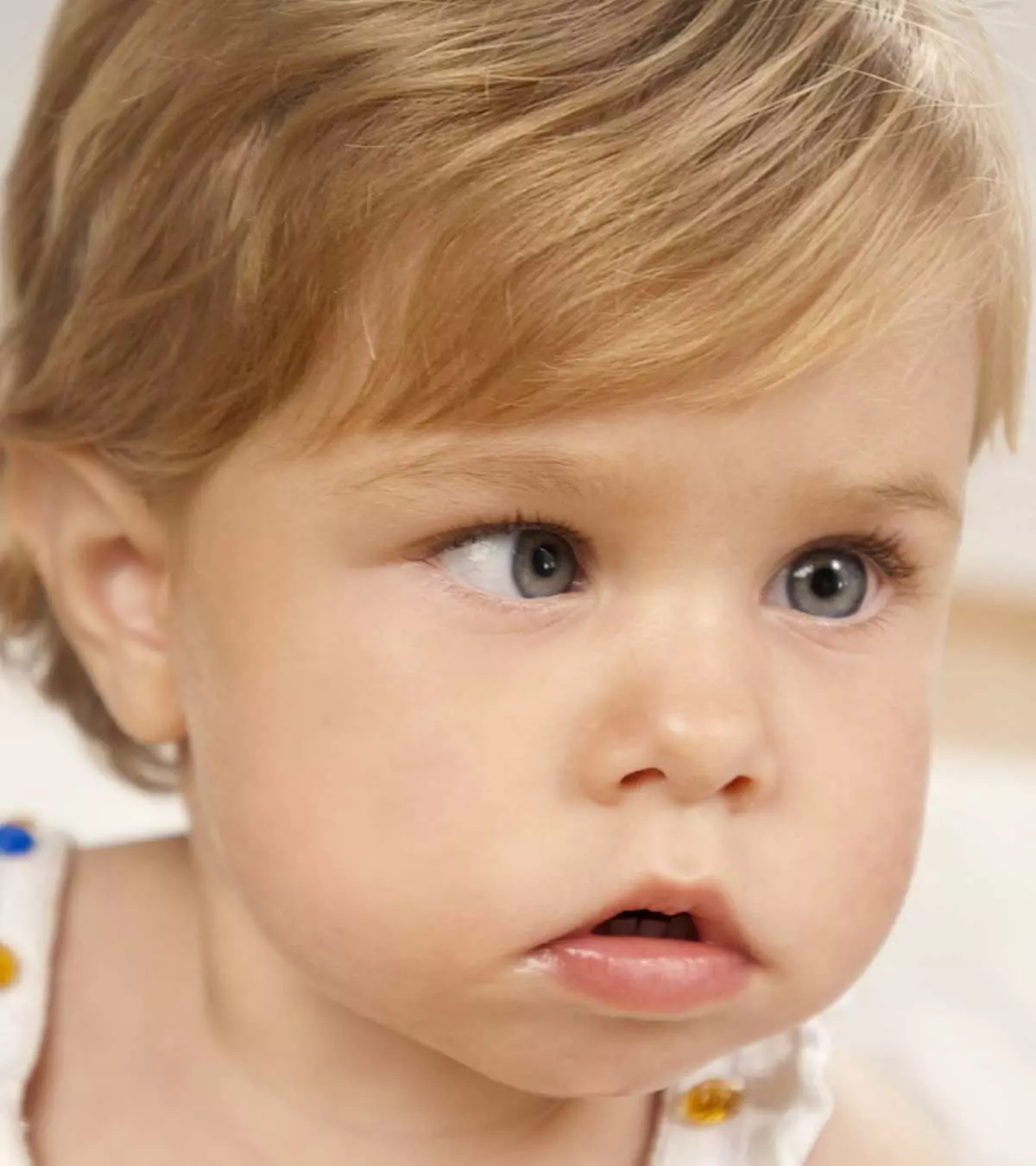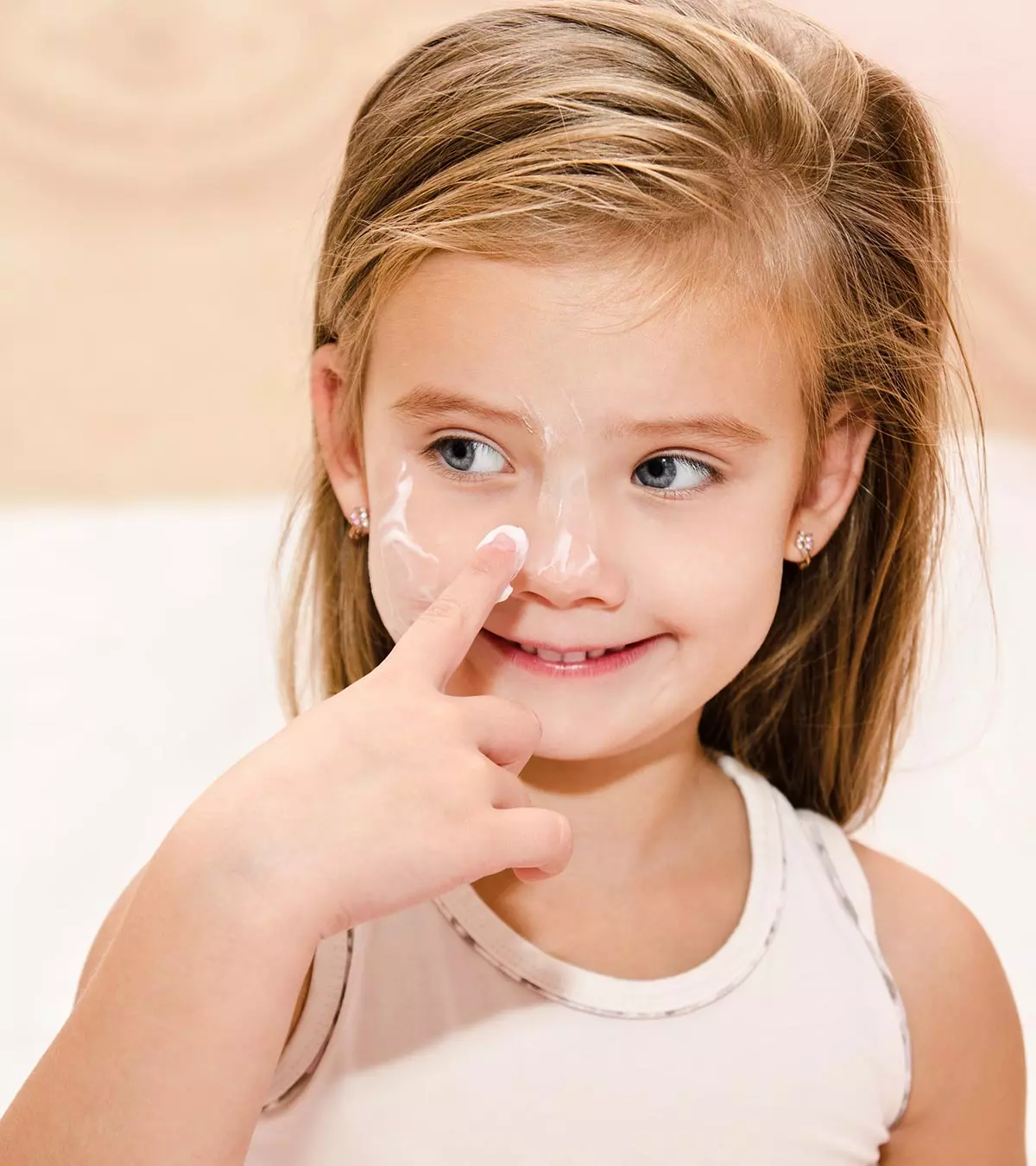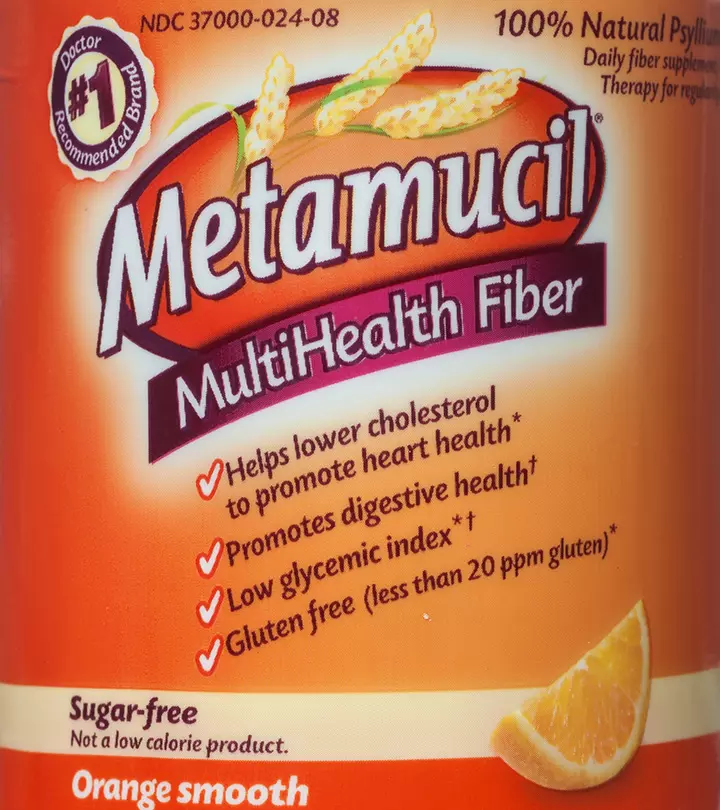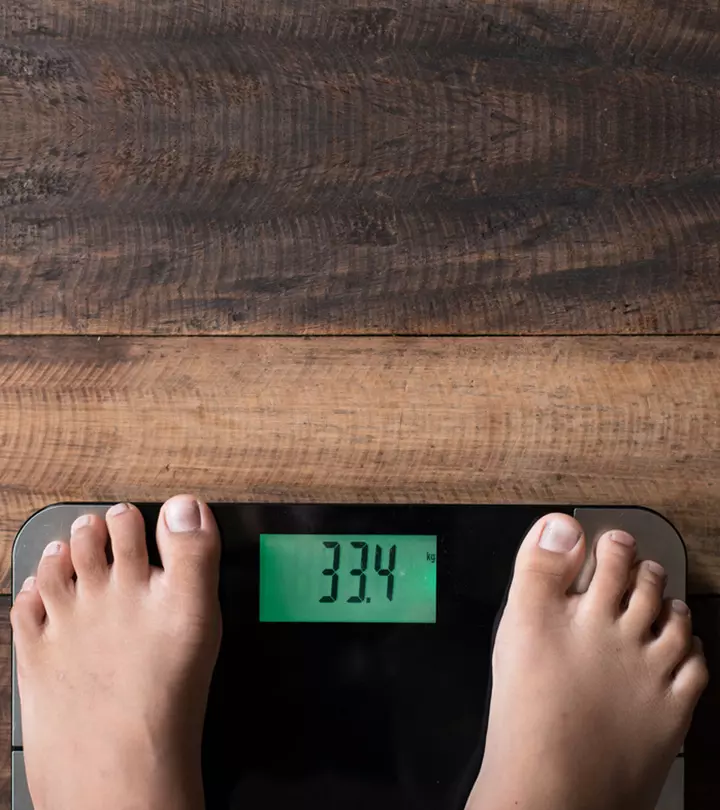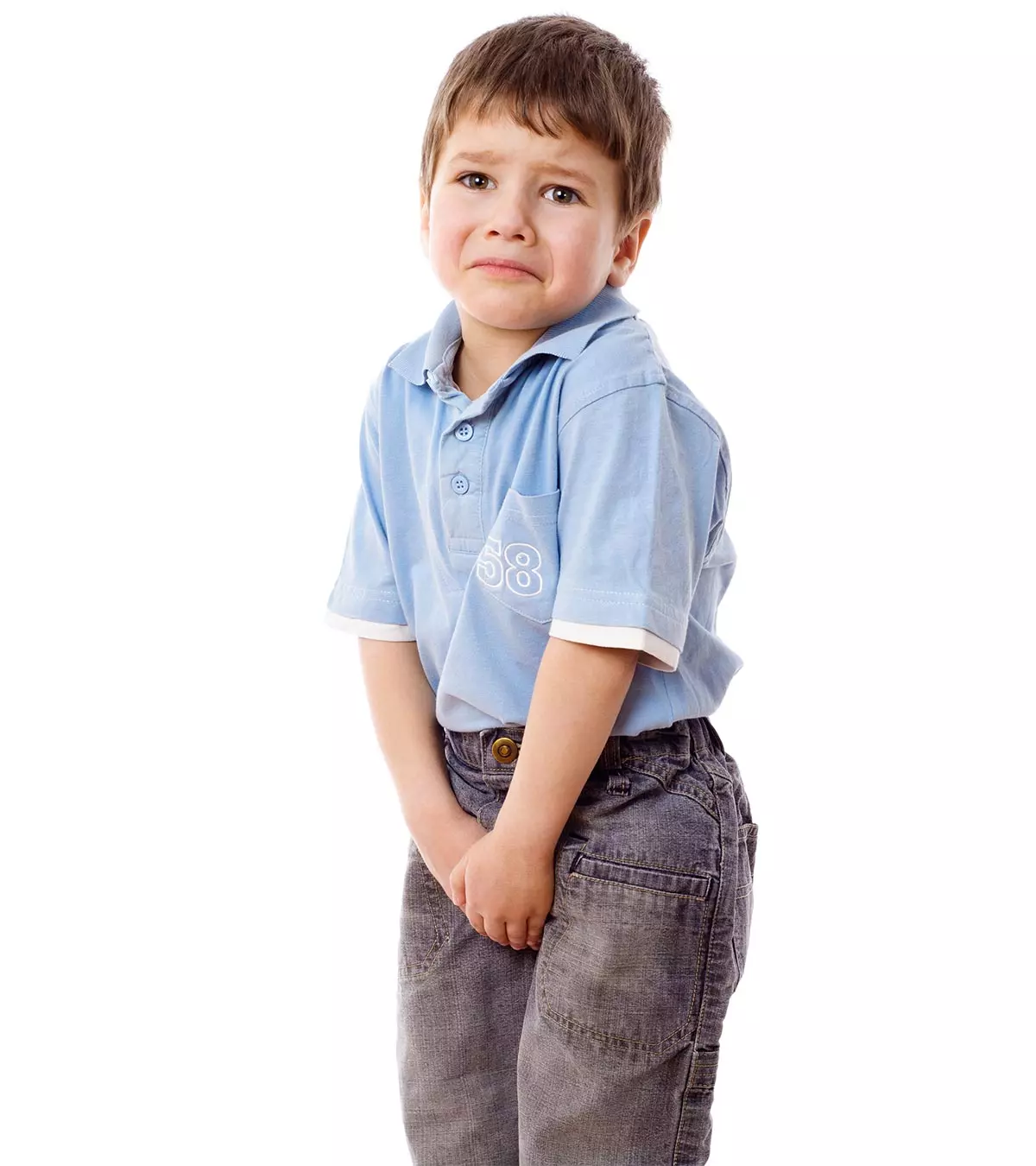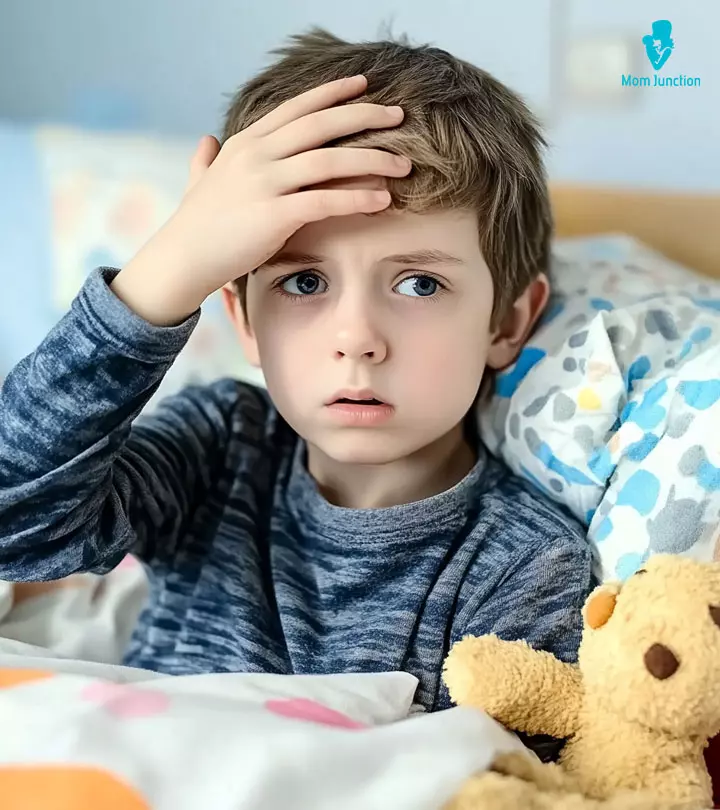
Image: Midjourney/ MomJunction Design Team
Have you ever observed your child experiencing intense outbreaks of sweating, causing their face to turn red? These could be signs of hot flashes in children. Additionally, some may also experience fever-like heat in several parts of the body. Though witnessing your child profusely perspiring could be alarming, hot flashes are seldom serious. Hot flashes in children are mostly similar to those in adults, and they can be caused by various factors, from hormonal changes at puberty to diet problems and chronic pain. Hence, they are treated depending on the underlying cause. Understanding hot flashes in children is vital for early intervention and management. Parents should be aware that these occurrences can be linked to various underlying health issues. Read on to learn more about hot flashes in children, including the possible causes, signs and symptoms, and ways to treat them.

Key Pointers
- Hormonal changes, including puberty or thyroid issues, can trigger hot flashes in children.
- Hot flashes in children can lead to excessive sweating and facial redness.
- A rapid heartbeat is a common indication of hot flashes in children.
- Hot flashes can cause irritability and mood swings in children.
- Antidepressants and hormone therapy may be effective in alleviating hot flash symptoms.
What Are Hot Flashes?
Hot flashes and night sweats are collectively called vasomotor symptoms. Generally, night sweats in children are normal and don’t have a specific cause. However, hot flashes usually warrant a medical check as a standard preventive care step. A hot flash is felt mostly during the day, while night sweats occur at night. A hot flash is a feeling of warmth or intense heat that spreads all over the body and is accompanied by perspirationiProcess of secretion of fluids from sweat glands or flushing. Although this feeling spreads throughout the body, it is prominent in some particular regions of the body, viz., neck, and head regions. There may also be dizziness, headache, rapid heartbeat, anxiety, stress, fatigue, and a feeling of suffocation, symptoms similar to panic attacks (1). So, if your child experiences hot flashes, they will have a sudden outbreak of sweat in their upper body.
 Quick fact
Quick factWhat Causes Hot Flashes In Children?
Hot flashes may result from certain medical conditions or due to a reaction to some medicine. The following are some of the common reasons.
1. Hormonal changes
There are sudden changes in the hormonal levels at the time of puberty. The hormones at puberty undergo change and spike, resulting in hot flashes. The reproductive system also undergoes changes both in girls as well as boys. Thus, childhood hot flashes are common occurrences at this stage of development.
2. Body thermostat
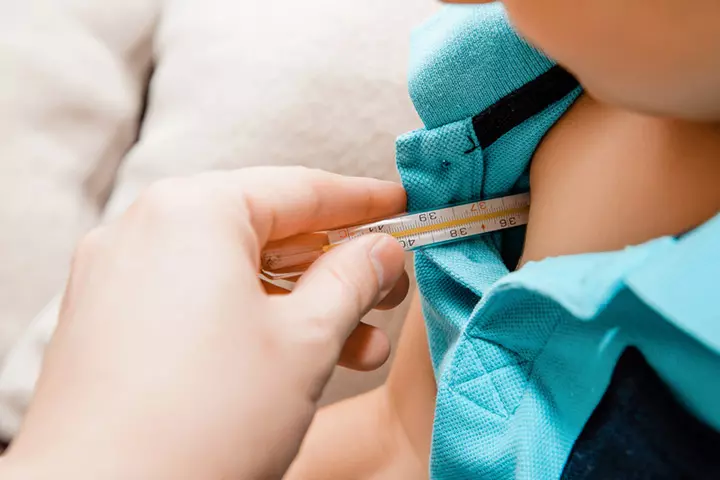
Changes in the thermostat or body temperature of your child’s body; the hypothalamus becomes more sensitive to slight changes in body temperature. The hypothalamus is the part of the brain that controls temperature regulation, blood pressure, appetite, and hormonal changes (2).
3. Side-effects of medication
If your child is on medication for some medical condition such as chronic illnesses, then you will observe hot flashes. Some medications stimulate hormonal changes that can lead to hot flashes. Even if your child stops taking her medicines, the symptoms will be visible for some time. However, if the feeling of flashes continues for a considerable duration, then please consult your doctor.
 Research finds
Research finds4. Lifestyle factors
Factors such as lack of physical activity, poor dietary choices, and excessive screen time can contribute to the frequency and severity of hot flashes in children. Encouraging a balanced lifestyle may reduce the occurrence of symptoms (3).
5. Diseases
While there is limited research done on the occurrence of hot flashes to children, studies on adults suggest that certain medical conditions might also cause hot flashes in younger individuals. For instance, studies conducted on adults have shown that conditions such as epilepsyiNeurological condition resulting in sudden, recurrent fits and unconsciousness and type 1 diabetes can be associated with hot flashes. Individuals who have epilepsy or are prone to seizures may experience hot flashes during seizure episodes (4) (5).
Similarly, conditions like thyroid disorders (such as hypothyroidismiA disorder in which the thyroid gland fails to produce enough thyroid hormone ) and pituitary gland disorders (like hypopituitarismiA disorder caused by the pituitary gland not producing enough hormones ), have been associated with hot flashes in adults (6) (7).
Pediatrician Dr. Supriya Wakchaure recalls a case from her practice involving a young patient with hot flashes. She says, “A 11-year-old girl had recurrent night sweats and hot flashes over two months. Initial concerns pointed to early puberty, but lab tests revealed she had mild thyroid overactivity (subclinical hyperthyroidism). With timely hormone management and dietary support, her symptoms resolved.”
Additionally, studies on women link hot flashes to menstrual disorders (8). These findings imply that similar underlying causes could potentially be responsible for the occurrence of hot flashes in children, though further research is needed to confirm this.
6. Phobia
A phobia is a feeling of fear for a thing or a situation. If your child has any phobia, then it is likely that they will have a sudden outbreak of perspiration and the feeling of warmth all over their body (9).
7. Spicy food
These days kids gorge on spicy and junk food. Such foods also aggravate the condition of hot flashes (2).
Hot flashes usually stop after some time. But if they persist for longer, consult your pediatrician, as it might signal an underlying medical condition.
US-based board-certified physician Dr. Laura Purdy says, “Some risk factors that increase the likelihood of hot flashes in children include obesity, stress, and anxiety. In addition, hormonal conditions such as hyperthyroidism and hypothyroidism may cause hot flashes.”
Symptoms Of Hot Flashes In Children
The frequency of child hot flashes varies, i.e. two children will show different levels and durations of hot flashes. Also, your child himself will have varied levels of hot flashes i.e. either a few or many in a day depending on the causes of such flashes. Also, hot flashes are more common during the night than in the day.
The following are the common symptoms that your child will experience during a hot flash (1).
- Increase in the heartbeat.
- A warm feeling spreads in the upper parts of the body.
- The skin color becomes red during a hot flash as if your child is blushing.
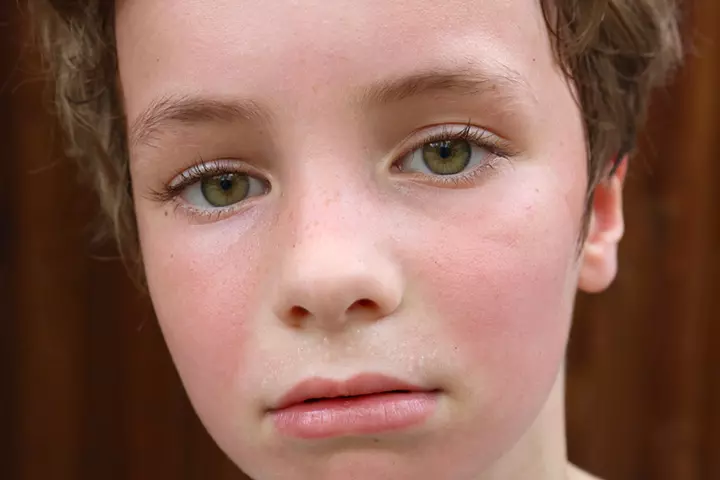
- When the hot flash subsides, there is a feeling of chilling in the body.
- If your child has a hot flash, then he will start sweating. Also, perspiration is mostly on the upper body.
Additional symptoms to watch for may include anxiety, fatigue, and sleep disturbances. These symptoms can often exacerbate the discomfort associated with hot flashes and should be monitored closely (10).
Treating Hot Flashes In Children
If your child experiences hot flashes, then your doctor will suggest a treatment depending on the causes and symptoms of your child. The doctor will also take into account any past medical history of your child and will suggest the treatment accordingly. The most important treatment modality is avoiding the triggers (such as caffeine). Also, prefer light clothing over tight dresses (1).
While treatments like antidepressants and hormone therapy are typically studied and prescribed for adults, they may also be recommended for children in certain cases of severe hot flashes, based on a doctor’s evaluation. It is important to consult a healthcare provider for the appropriate dosage and suitability for your child.
1. Antidepressants
If your child shows signs of hot flashes then, they will be given antidepressants in small doses. Examples of some antidepressants that are used for adults are listed below. However, since medications for adults and children are not always alike (3) (2).
- Fluoxetine (Prozac, Sarafem)
- Clonidine (Catapres)
- Venlafaxine (Effexor XR, Pristiq)
- Paroxetine (Paxil, Pexeva)
- Gabapentin
2. Hormone therapy
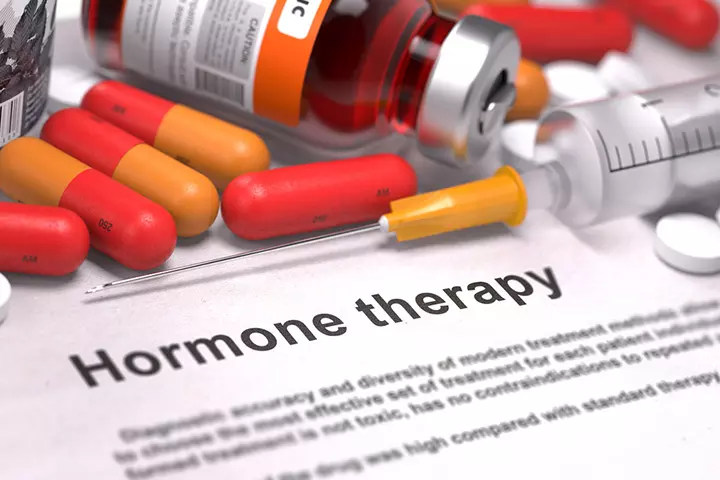
If your child has frequent attacks of hot flashes, then the doctor could suggest hormone therapy of estrogeniA hormone that regulates the growth of long bones and develops female sex characteristics and progesteroneiA steroid hormone that plays a key role in the regulation of the menstrual cycle and early stages of pregnancy . However, if you have a family history of uterus or breast cancer, then estrogen therapy for your young girl may not be a good option.
Practical Tips For Managing Hot Flashes At Home
Managing hot flashes at home doesn’t have to be difficult. Here are some practical and effective tips to help reduce the frequency and intensity of hot flashes, ensuring your child feels more comfortable (3).
- Stay Cool: Ensure your child’s environment is cool and well-ventilated. Use fans, cool compresses, or air conditioning to help regulate body temperature.
- Encourage Hydration: Drinking plenty of water can help keep the body cool and prevent dehydration, which may worsen hot flashes.
- Dress Appropriately: Choose lightweight, breathable clothing made of natural fibers like cotton, which allow the skin to breathe.
- Limit Trigger Foods: Certain foods, such as spicy dishes, caffeine, and alcohol, can trigger hot flashes. Encourage your child to avoid these when possible.
- Promote Stress Management: Encourage relaxation techniques such as deep breathing, yoga, or meditation to reduce stress and anxiety, which can trigger hot flashes.
- Create a Healthy Routine: Encourage regular physical activity and a balanced diet rich in fruits, vegetables, and whole grains. Limiting screen time before bed can also help regulate body temperature and improve sleep quality. Cedars Senai states, “Because obesity is a risk factor for hot flashes, maintaining a healthy weight through diet and exercise can play a powerful role in decreasing them (2).“
- Monitor Medications: If your child is on medication, consult their doctor to determine if it could be contributing to the hot flashes. Never stop or adjust medication without professional guidance.
Frequently Asked Questions
1. Are there any long-term effects of hot flashes in children?
It is usually the underlying cause of hot flashes in children that could have long-term effects. For instance, hot flashes due to anxiety disorders may cause long-term complications. These disorders may also cause impaired concentration and physical symptoms such as muscle strain, sweating, and nausea (10).
2. How can parents support their children during hot flashes?
Parents must understand what hot flashes are and what triggers them to support their children. They should offer cold water, cool towels, and comfortable clothing to provide comfort. It is essential to encourage their children to have a healthy lifestyle by promoting exercise, a balanced diet, and stress-reducing activities.
3. Are hot flashes in children more common in boys or girls, or do they affect both equally?
The existing medical research does not exhibit gender predilection for pediatric hot flashes.
4. Can stress or emotional factors contribute to the occurrence of hot flashes in children?
Stressful and emotional situations may cause anxiety, fatigue, and weakness which are often associated with episodes of hot flashes (10). Frequent hot flashes require a doctor’s consultation for appropriate diagnosis and treatment.
5. Are any specific age groups more prone to experiencing hot flashes in children?
The available medical research and statistics have not noticed any age-related predilection of hot flashes in children.
6. Are there any ongoing research studies or advancements in understanding and treating hot flashes in children?
Small-scale research has shown that evening primrose oil, black cohosh, soy, vitamin E, and acupuncture may have a mild effect on improving symptoms of hot flashes (3). Further research will be needed to validate their efficacies.
In most cases, hot flashes in children could be due to harmless factors and might not be cause for concern. If your child shows the symptoms of hot flashes, try to identify the triggering factors. If the hot flashes are accompanied by other concerning signs, consult a doctor. The healthcare provider would usually treat hot flashes based on the symptoms, and hence, the treatment may or may not include medication. Simultaneously, try to control the triggering factors and engage your child in relaxing practices to reduce the occurrence of hot flashes.
Infographic: Potential Causes Of Hot Flashes In Children
Hot flashes (usually caused by hormonal changes) are common in children, especially as they approach puberty. While the infographic below highlights other possible causes of hot flashes in children, it is essential to consult a healthcare provider if your child is experiencing discomfort or other unusual symptoms. Illustration: Momjunction Design Team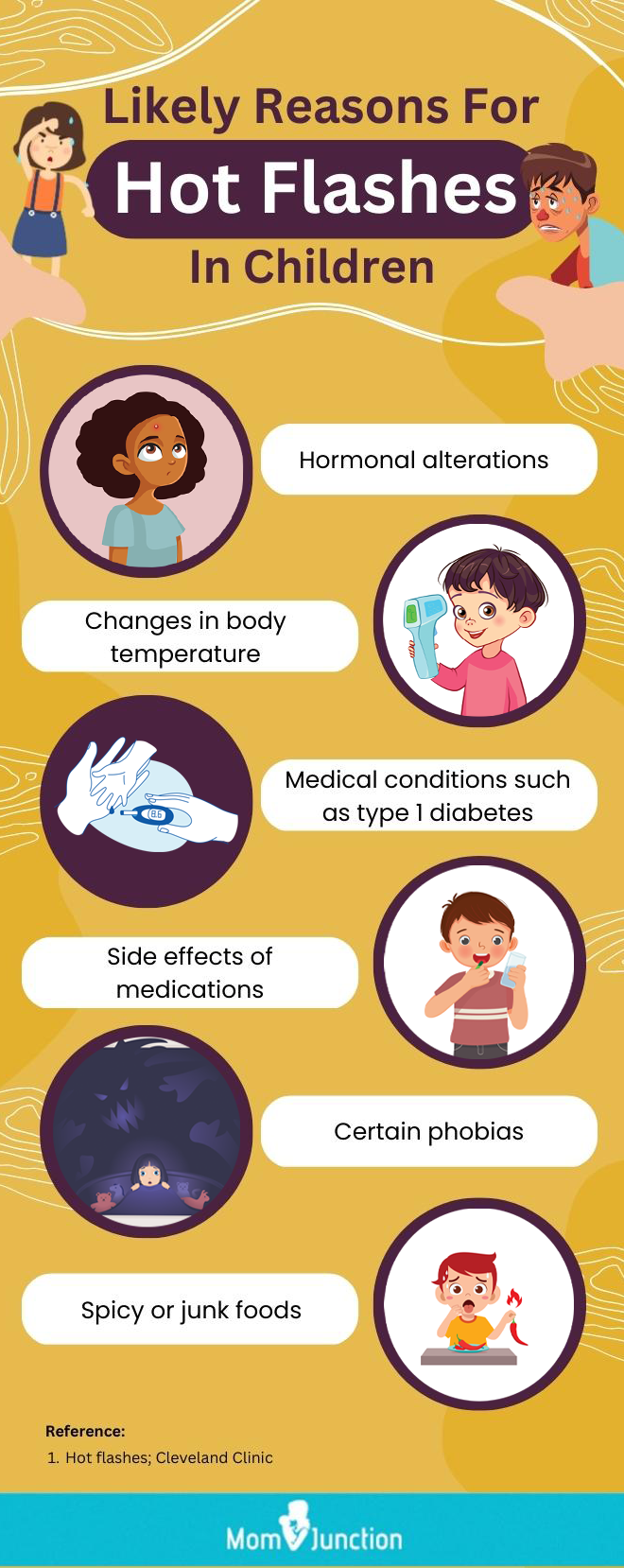
Experience relief from common menopause symptoms like hot flashes by exploring causes, signs, and solutions in this enlightening video. Arm yourself with knowledge and seize control of your well-being today!
References
- Panic attacks
https://www.icope.nhs.uk/camden-islington/problems-we-help-with/334-2/panic-attacks/ - Why Hot Flashes Occur and How to Treat Them.
https://www.cedars-sinai.org/blog/why-hot-flashes-occur-and-how-to-treat-them.html#:~:text=Triggers%20for%20hot%20flashes%20includedrinking%20alcohol%20or%20caffeinated%20drinks - Hot Flashes
https://my.clevelandclinic.org/health/articles/15223-hot-flashes - Epilepsy.
https://www.mountsinai.org/health-library/report/epilepsy - Kenny Glen P. et al.; (2016); Body Temperature Regulation in Diabetes.
https://pmc.ncbi.nlm.nih.gov/articles/PMC4861190/#s0008 - Signs you might have a thyroid problem.
https://intermountainhealthcare.org/blogs/signs-you-might-have-a-thyroid-problem - Hypopituitarism.
https://my.clevelandclinic.org/health/diseases/22102-hypopituitarism - Menstrual disorders.
https://www.mountsinai.org/health-library/report/menstrual-disorders - Phobias in Children.
https://www.cedars-sinai.org/health-library/diseases-and-conditions—pediatrics/p/phobias-in-children.html# - Hot Flashes
https://www.ncbi.nlm.nih.gov/books/NBK539827/ - Hot flashes
https://www.cham.org/health-library/article?id=sth149818 - Marco Miroddi et al; (2012); Hot Flashes in a Young Girl: A Wake-up Call Concerning Serenoa repens Use in Children
https://publications.aap.org/pediatrics/article-abstract/130/5/e1374/32394/Hot-Flashes-in-a-Young-Girl-A-Wake-up-Call?redirectedFrom=fulltext
Community Experiences
Join the conversation and become a part of our nurturing community! Share your stories, experiences, and insights to connect with fellow parents.
Read full bio of Dr. Mubina Agboatwalla

Dr. Supriya Wakchaure is a renowned pediatrician and neonatologist from Surat, Gujarat, India. She has worked at top medical colleges and government hospitals, including KEM Hospital, Mumbai and Civil Hospital, Surat. She has presented various research papers. Dr. Wakchaure is the founder of several mother-support groups. Her services include growth and development evaluation management, allergy testing, tonsillitis treatment, congenital disorders evaluation and treatment, among others.
Dr. Supriya Wakchaure is a renowned pediatrician and neonatologist from Surat, Gujarat, India. She has worked at top medical colleges and government hospitals, including KEM Hospital, Mumbai and Civil Hospital, Surat. She has presented various research papers. Dr. Wakchaure is the founder of several mother-support groups. Her services include growth and development evaluation management, allergy testing, tonsillitis treatment, congenital disorders evaluation and treatment, among others.
- Dr. Laura Purdy is a board-certified Family Medicine Physician with over a decade of experience. Previously a performing pianist, she later did her graduation in Psychology (Magna Cum Laude) from Ball State University and attended medical school at the Uniformed Services University of the Health Sciences. After graduating with a family medicine residency at Georgia’s Martin Army Hospital, she joined as a US Army physician.
 Dr. Laura Purdy is a board-certified Family Medicine Physician with over a decade of experience. Previously a performing pianist, she later did her graduation in Psychology (Magna Cum Laude) from Ball State University and attended medical school at the Uniformed Services University of the Health Sciences. After graduating with a family medicine residency at Georgia’s Martin Army Hospital, she joined as a US Army physician.
Dr. Laura Purdy is a board-certified Family Medicine Physician with over a decade of experience. Previously a performing pianist, she later did her graduation in Psychology (Magna Cum Laude) from Ball State University and attended medical school at the Uniformed Services University of the Health Sciences. After graduating with a family medicine residency at Georgia’s Martin Army Hospital, she joined as a US Army physician.
Read full bio of Dr. Ritika Shah
Read full bio of Swati Patwal
Read full bio of Ghazia Shah







